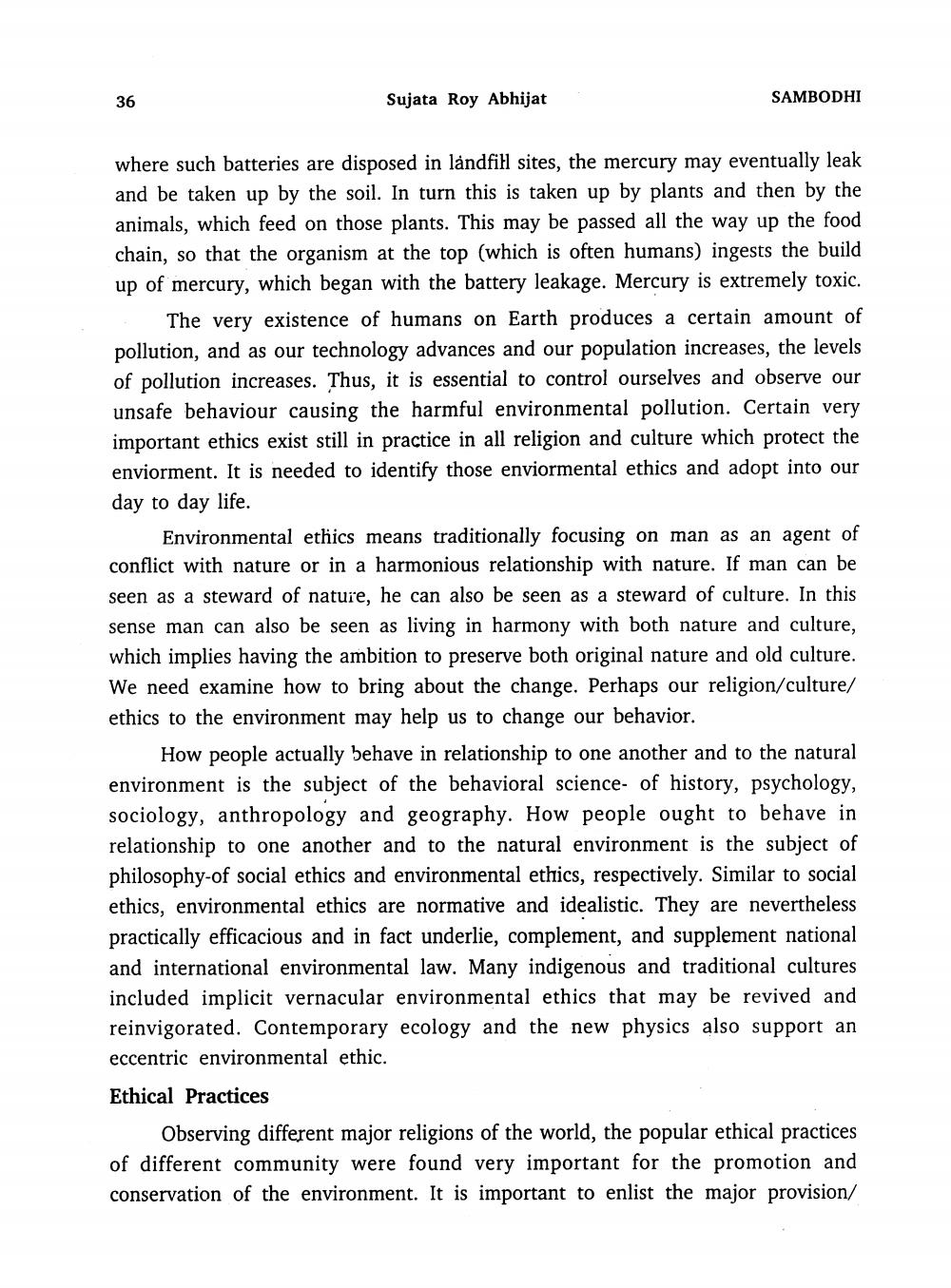________________
Sujata Roy Abhijat
SAMBODHI
where such batteries are disposed in landfill sites, the mercury may eventually leak and be taken up by the soil. In turn this is taken up by plants and then by the animals, which feed on those plants. This may be passed all the way up the food chain, so that the organism at the top (which is often humans) ingests the build up of mercury, which began with the battery leakage. Mercury is extremely toxic.
The very existence of humans on Earth produces a certain amount of pollution, and as our technology advances and our population increases, the levels of pollution increases. Thus, it is essential to control ourselves and observe our unsafe behaviour causing the harmful environmental pollution. Certain very important ethics exist still in practice in all religion and culture which protect the enviorment. It is needed to identify those enviormental ethics and adopt into our day to day life.
Environmental ethics means traditionally focusing on man as an agent of conflict with nature or in a harmonious relationship with nature. If man can be seen as a steward of nature, he can also be seen as a steward of culture. In this sense man can also be seen as living in harmony with both nature and culture, which implies having the ambition to preserve both original nature and old culture. We need examine how to bring about the change. Perhaps our religion/culture/ ethics to the environment may help us to change our behavior.
How people actually behave in relationship to one another and to the natural environment is the subject of the behavioral science- of history, psychology, sociology, anthropology and geography. How people ought to behave in relationship to one another and to the natural environment is the subject of philosophy of social ethics and environmental ethics, respectively. Similar to social ethics, environmental ethics are normative and idealistic. They are nevertheless practically efficacious and in fact underlie, complement, and supplement national and international environmental law. Many indigenous and traditional cultures included implicit vernacular environmental ethics that may be revived and reinvigorated. Contemporary ecology and the new physics also support an eccentric environmental ethic. Ethical Practices
Observing different major religions of the world, the popular ethical practices of different community were found very important for the promotion and conservation of the environment. It is important to enlist the major provision/




